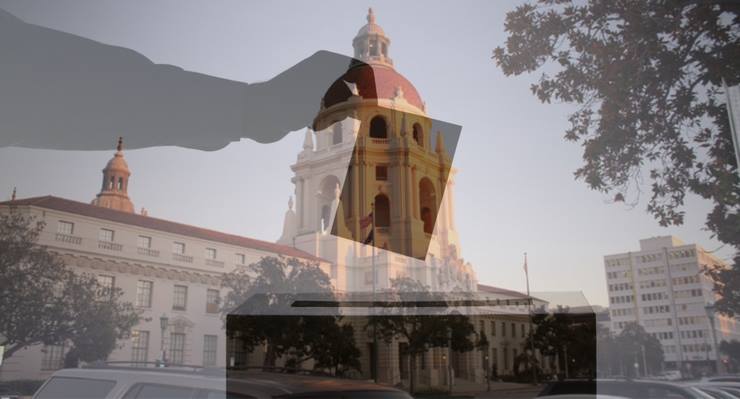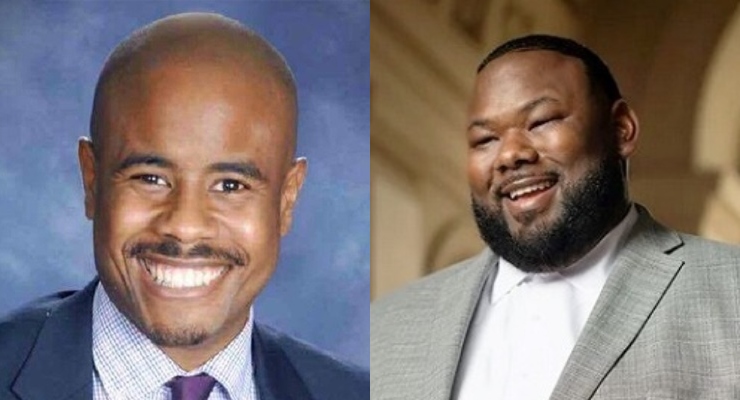A lawyer for Fuller Seminary said that a lawsuit filed by two students kicked out of the school because they are involved in same-sex marriages is about religious freedoms without government interference.
In a federal lawsuit Joanna Maxon and Nathan Brittsan claim their civil rights were violated and they suffered emotional distress when they were expelled from the school. They are asking for $2 million.
“Fuller trains students to be Christian leaders,” said Daniel Blomberg, senior counsel for the Becket Fund for Religious Liberty.
“This case is about whether religious groups get to decide how to train their religious leaders, free from government entanglement.”
Maxon was kicked out of the seminary in 2019 in a letter from defendant Director Nicole Boymook, for violation of the Sexual Standards component of the Fuller’s Community Standards. Brittsan was expelled in September 2017 on the basis of a violation of sexual standards of Fuller’s Community Standards. He was added to the lawsuit earlier this week.
According to the college’s website, “Fuller Theological Seminary believes that sexual union must be reserved for marriage, which is the covenant union between one man and one woman, and that sexual abstinence is required for the unmarried.”
When asked if any other LGBTQ students were kicked out of the seminary or any heterosexual students were removed for having sex before marriage, which Christians say the bible also identifies as sin, Blomberg would not answer.
“Fuller Theological does not generally publish that sort of sensitive information,” Blomberg said.
However, Maxon and Brittsan’s attorney Paul Southwick said that a student accused of have a heterosexual extramarital affair was allowed to remain in the seminary.
At the time Maxon enrolled in 2015 she was married to a man and agreed to follow the college’s code of conduct, including those regarding sexual standards.
But sometime before she began her first class, her marriage ended and Maxon began dating a woman.
She married her wife after the US Supreme Court legalized same-sex marriage in 2016. She authorized the release of her tax returns during a review of her financial aid.
During that review, college officials discovered she was married to a woman and she was expelled from the college.
Brittsan applied in 2017. He and his husband were married in 2016. He informed Fuller that his church was focused on social justice with an emphasis on homeless ministry and issues of class, race and equality. He was expelled after he filed paperwork with the seminary to change his name from Henning to Brittsan in his student file.
According to the document, in the course of the process officials with the seminary learned that he requested the name change due to his marriage. School officials did not inform him how they learned about his marriage.
Maxon and Brittsan received federal assistance to attend the seminary. Title IX prohibits gender identity discrimination at institutions that accept federal aid.
The lawsuit claims Title IX violations.
The law was passed as a followup to the Civil Rights Act of 1964, to end discrimination in various fields based on race, color, religion, sex, or national origin in the areas of employment and public accommodation.
The law was passed because the Civil Rights Act did not prohibit sex discrimination against persons employed at educational institutions. A parallel law, Title VI, was enacted in 1964 to prohibit discrimination in federally funded private and public entities. It covered race, color and national origin but excluded sex.
According to the Office for Civil Rights, religious institutions are entitled to exemptions from Title IX nondiscrimination rules if the school is connected to a church.
In April, the U.S. Supreme Court agreed to hear three cases centered on the question of whether Title IX applies to sexual orientation and gender identity, neither of which are explicitly mentioned in the law.
“In 2012, the U.S. Supreme Court ruled unanimously that the First Amendment commits these kinds of issues to religious groups to decide, not the courts,” said Blomberg. “A healthy separation of church and state allows us to consider these matters for our religious community within our religious community.”


















